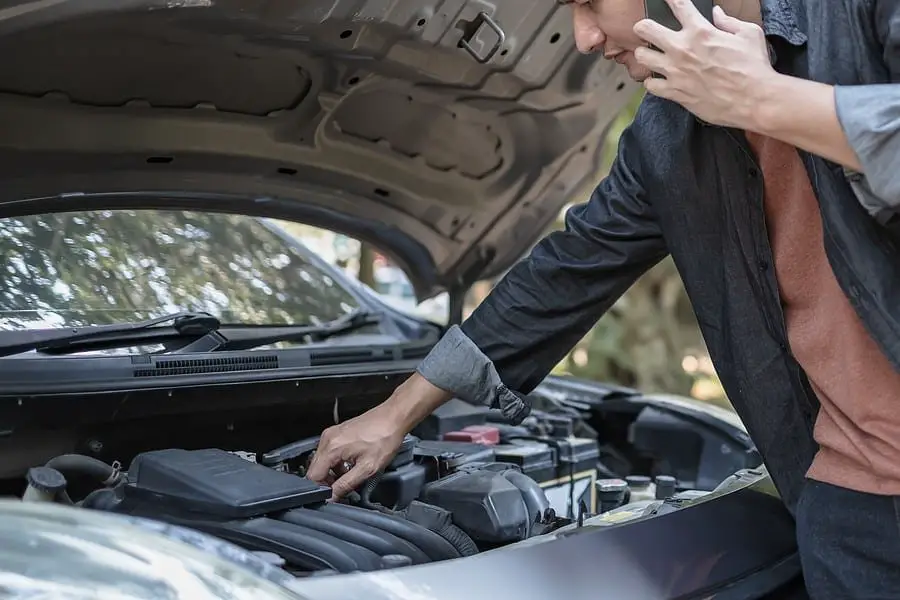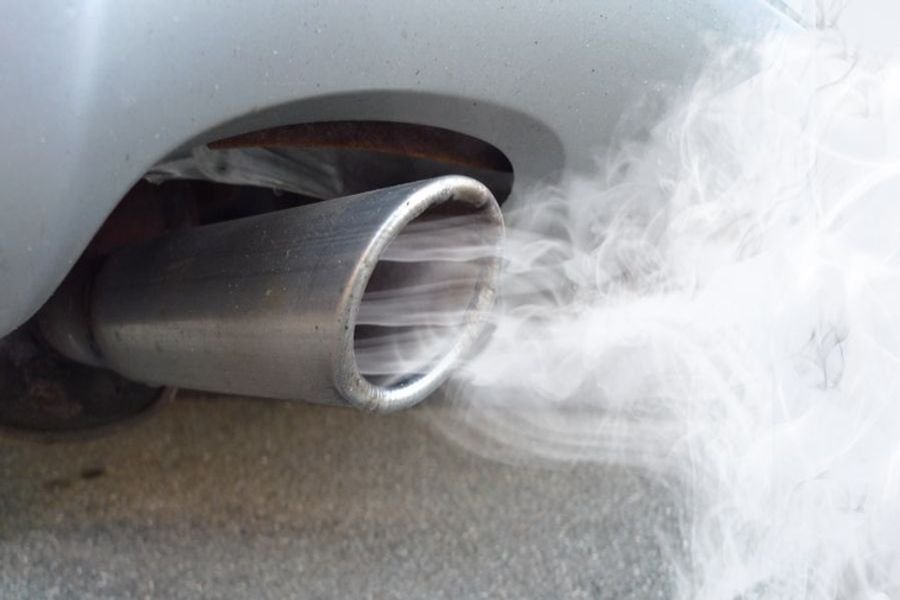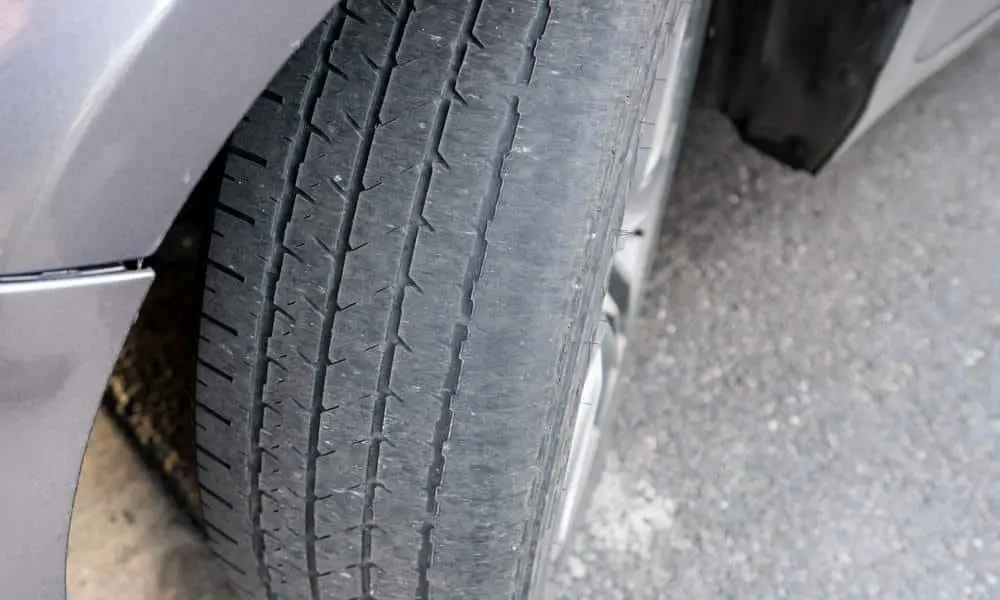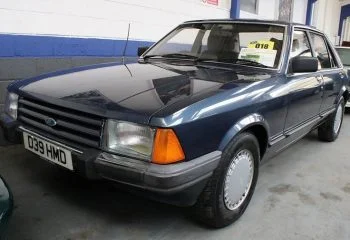Have you ever been driving along, thinking everything is normal and then suddenly you’d be like:”Why my car sounds like a lawn mower?”. It can be quite alarming to hear this unfamiliar noise coming from your car, especially when you’re not sure what it means.
In this blog post, we will explore why cars sometimes make these strange sounds and some of the potential solutions that may help reduce or eliminate them. By understanding the cause behind the sound and how to address it, taxi and car drivers can keep themselves safe while on the road with confidence.
What's in this post?
Top 6 Reasons Why My Car Sounds Like A Lawn Mower

Blown Head Gasket
A head gasket is located between the engine block and cylinder head in an internal combustion engine. Its purpose is to seal the cylinders in order to prevent coolant or oil from leaking into the combustion chamber. The head gasket also ensures that there is proper compression in the cylinders for efficient combustion.
One of the main symptoms of a blown head gasket is a car engine that sounds like a lawnmower. The head gasket seals the cylinders, and when it fails, compression is lost, leading to engine issues like power loss, overheating, and oil leaks.
Prevent your head gasket from blowing by following these tips:
- Regularly check coolant level and avoid letting it get low.
- Avoid engine overheating by monitoring the temperature gauge. If it climbs too high, pull over, turn off the engine, and wait for it to cool down.
To prevent your head gasket from blowing and avoid costly repairs, regularly service your car as per the manufacturer’s recommendations. Stay on top of essential maintenance tasks like oil changes and tune-ups. These simple tips can save you money in the long run.
Effects of an Exhaust Leak

Exhaust leaks are often caused by corrosion. Moisture from rain and snow can lead to rust on pipes and flanges, resulting in leaks. Debris from the road, like rocks and sticks, can also puncture pipes or mufflers and cause leaks. Inadequate installation or repair work can contribute to system leaks as well.
If your car has an exhaust leak, it may sound like a lawn mower when you accelerate. This happens because the engine struggles to expel the air-fuel mixture due to the leak.
As a result, it will be less efficient and consume more fuel than usual. An exhaust leak can also reduce engine power and cause premature wear on other components like spark plugs and oxygen sensors.
If you suspect a problem with your car’s exhaust system, have it inspected promptly by a qualified mechanic. While corrosion is difficult to prevent in certain weather conditions, regular inspections are crucial for identifying potential issues before they worsen (and become more expensive).
Repairs can vary from welding patches or part replacements to full system replacement, depending on the severity of the issue.
What is an Engine Misfire?
An engine misfire happens when cylinders fail to ignite the fuel-air mixture in the combustion chamber. This means no power is produced when the piston comes up. In this case, incorrect spark plug firing causes the car to run erratically and make strange noises, like a lawn mower.
Several possible causes for an engine misfire should be checked by a professional mechanic before making any repairs. These causes include bad spark plugs, clogged fuel injectors, dirty air filters, faulty oxygen sensors, vacuum leaks, and more.
If these causes are not identified and addressed properly, they could lead to more damage in other engine parts like valves or complete cylinder failure. The best way to fix an engine misfire is to have a professional mechanic diagnose and determine the cause.
Based on their inspection findings, they will likely recommend replacing worn-out or damaged components like spark plugs or oxygen sensors before proceeding with other necessary repairs to restore your car’s smooth operation. They may also suggest cleaning fuel injectors or air filters if needed.
Your Tires are Worn Out

Several factors can cause tire wear, with age being the most common. Even with proper care, tires will eventually need replacing when they reach the end of their lifespan.
Driving on rough roads can cause tire wear, reducing tread effectiveness. Frequent driving in hot weather also contributes to tire wear.
To determine if your tires are worn out, there are a few signs. One obvious indication is strange noises while driving, which tend to increase with worn-out tires. Additionally, you may experience reduced handling and longer braking distances. If you suspect tire wear, it’s crucial to have them inspected promptly by a professional.
If your tires are worn out, the only solution is to replace them. You can either do it yourself or take your car to a mechanic.
If you choose to replace the tires on your own, follow instructions carefully and take safety precautions. Drive cautiously until you get used to the new feel of your car.
Old Differential Fluid Issues
The differential, located between the wheels of your vehicle, enables them to spin at varying speeds. This is particularly useful during turns, as it prevents the need for the inner wheel to spin faster than the outer wheel.
The differential transfers power from the engine to the wheels through gears, requiring proper lubrication for optimal functionality. Differential fluid plays a crucial role in this process.
The differential fluid should be changed regularly as it breaks down over time from heat and friction caused by use. If the gears in the differential lack lubrication, they can become damaged or worn out. Look out for unusual noises, like grinding or squealing, which indicate the need for new differential fluid.
Failing to change your differential fluid regularly can lead to decreased fuel efficiency and damage to other parts of the drivetrain system, including bearings and axles. This can result in costly repairs or replacements, leaving you with a noisy car resembling a lawn mower!
To maintain optimal performance, change your differential fluid every 30,000 miles based on your vehicle usage and terrain (e.g., city streets or off-road). This ensures proper lubrication and functionality of your drivetrain system.
Faulty Wheel Bearing
A wheel bearing is part of a vehicle’s suspension system that supports the car’s weight and cushions its movements. It is an enclosed metal ring with steel balls or rollers to reduce friction between the axle and wheel hub when turning. It also ensures maximum efficiency by keeping the tires in contact with the ground. Without this vital component, your car wouldn’t move smoothly, if at all!
The most common symptom of a faulty wheel bearing is a loud noise from one of the wheels at high speeds. This noise can be a clicking, grinding, or humming sound that worsens with increased speed.
Other signs include vibrations from one side of the vehicle, uneven tire wear, or steering difficulty. If you notice any of these symptoms, it’s likely that there could be a problem with your wheel bearing.
If you suspect an issue with your wheel bearing, it’s important to have a professional mechanic check and assess the required actions. In some cases, replacing the bearing is sufficient, but additional repairs, like replacing other parts, may also be necessary. Your mechanic will provide advice and cost estimates beforehand to avoid any surprises.
Conclusion
Above are all the reasons why you wonder “Why my car sounds like a lawn mower?”. All in all, old cars are like any other machines – they need proper maintenance and care. If you’re having trouble with a noisy car, it’s important to diagnose the potential issue as soon as possible to avoid those hefty repair bills.
Learning how to recognize signs that something may be wrong before it has a chance to become a big problem will save you money this summer and keep your vehicle running smoothly. Of course, if you don’t have the expertise or know-how to work on your car yourself, there are plenty of certified mechanics available who can help you identify and solve the issue quickly and professionally.
And lastly, if I have learned anything from this experience its that following the routine maintenance tips recommended by your manufacturer will not only help you get the most out of your vehicle but will also prevent further damage that could cost more time and money in the long run.





